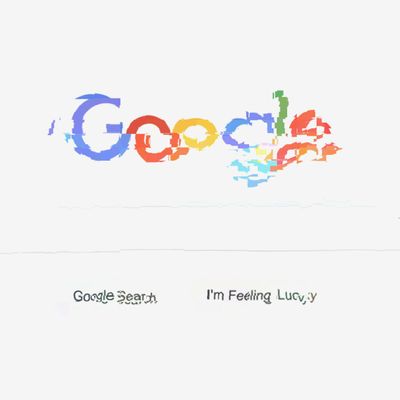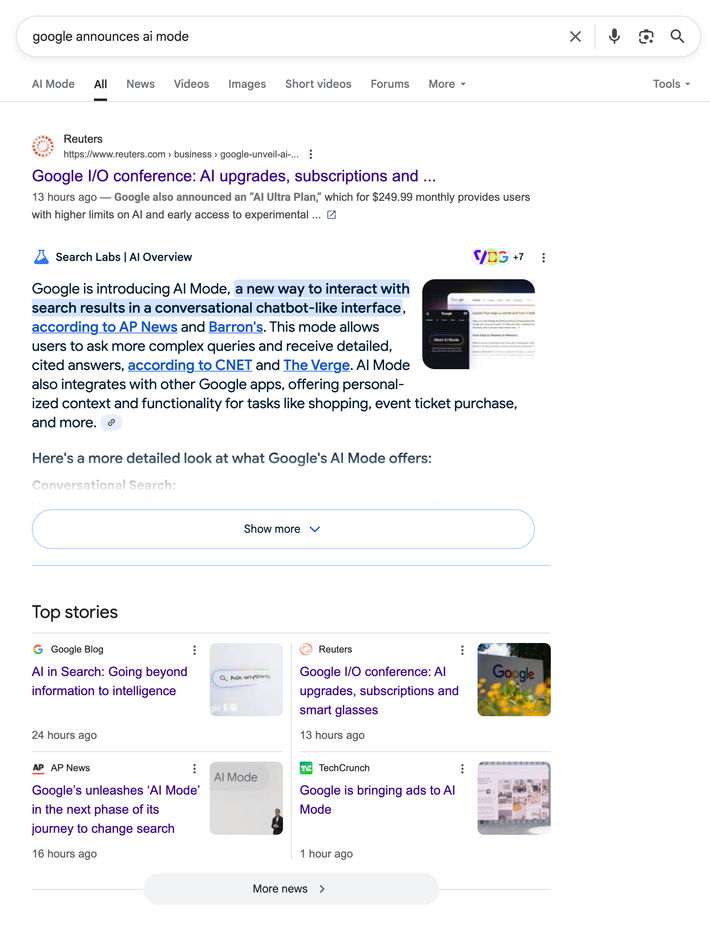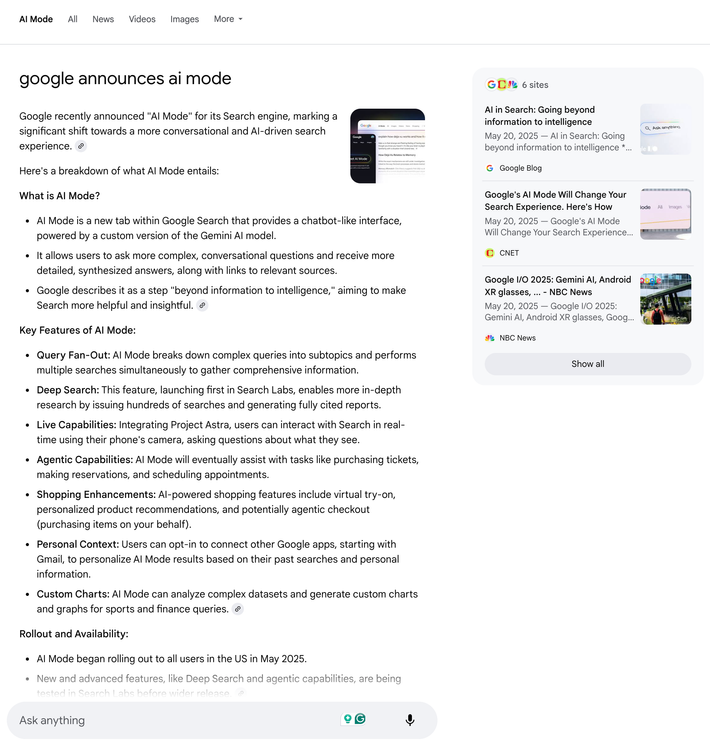Google Is Burying the Web Alive
By
John Herrman, a tech columnist at Intelligencer
5:00 A.M.
3 Comments
Photo-Illustration: Intelligencer
By now, there’s a good chance you’ve encountered
Google’s
AI Overviews, possibly thousands of times. Appearing as blurbs at the top of search results, they attempt to settle your queries before you scroll — to offer answers, or relevant information, gleaned from websites that you no longer need to click on. The feature was officially rolled out at Google’s developer conference last year and had been in testing for quite some time before that; on the occasion of this year’s conference, the company characterized it as “one of the most successful launches in Search in the past decade,” a strangely narrow claim that is almost certainly true: Google put AI summaries on top of everything else,
for everyone, as if to say, “Before you use our main product, see if this works instead.”
This year’s conference included another change to search, this one more profound but less aggressively deployed. “AI Mode,” which has similarly been in beta testing for a while, will appear as an option for all users. It’s not like AI Overviews; that is, it’s not an extra module taking up space on a familiar search-results page but rather a complete replacement for conventional search. It’s Google’s “most powerful AI search, with more advanced reasoning and multimodality, and the ability to go deeper through follow-up questions and helpful links to the web,” the company says, “breaking down your question into subtopics and issuing a multitude of queries simultaneously on your behalf.” It’s available to everyone. It’s a lot like using AI-first chatbots that have search functions, like those from OpenAI, Anthropic, and Perplexity, and Google says it’s destined for greater things than a small tab. “As we get feedback, we’ll graduate many features and capabilities from AI Mode right into the core Search experience,” the company says.
I’ve been testing AI Mode for a few months now, and in some ways it’s less radical than it sounds and (at first) feels. It resembles the initial demos of AI search tools, including those by Google, meaning it responds to many questions with clean, ad-free answers. Sometimes it answers in extended plain language, but it also makes a lot of lists and pulls in familiar little gridded modules — especially when you ask about things you can buy — resulting in a product that, despite its chatty interface, feels an awful lot like … search.
Again, now you can try it yourself, and your mileage may vary; it hasn’t drawn me away from Google proper for a lot of thoughtless rote tasks, but it’s competitive with
ChatGPT for the expanding range of searchish tasks you might attempt with a chatbot.
From the very first use, however, AI Mode crystallized something about Google’s priorities and in particular its relationship to the web from which the company has drawn, and returned, many hundreds of billions of dollars of value. AI Overviews demoted links, quite literally pushing content from the web
down on the page, and summarizing its contents for digestion without clicking:
Photo-Illustration: Intelligencer; Screenshot: Google
Meanwhile, AI Mode all but
buries them, not just summarizing their content for reading within Google’s product but inviting you to explore and expand on those summaries by asking more questions, rather than clicking out. In many cases, links are retained merely to provide backup and sourcing, included as footnotes and appendices rather than destinations:
Photo-Illustration: Intelligencer; Screenshot: Google
This is typical with AI search tools and all but inevitable now that such things are possible.
In terms of automation, this means companies like OpenAI and Google are mechanizing some of the “work” that goes into using tools like Google search, removing, when possible, the step where users leave their platforms and reducing, in theory, the time and effort it takes to navigate to somewhere else when necessary. In even broader terms — contra Google’s effort to brand this as “going beyond information to intelligence” — this is an example of how LLMs offer
different ways to interact with much of the same information: summarization rather than retrieval, regeneration rather than fact-finding, and vibe-y reconstruction over deterministic reproduction.
This is interesting to think about and often compelling to use but leaves unresolved one of the
first questions posed by chatbots-as-search: Where will they get all the data they need to
continue to work well? When Microsoft and Google showed off their first neo-search mockups in 2023, which are pretty close to today’s AI mode, it revealed
a dilemma:
Search engines still provide the de facto gateway to the broader web, and have a deeply codependent relationship with the people and companies whose content they crawl, index, and rank; a Google that instantly but sometimes unreliably summarizes the websites to which it used to send people would destroy that relationship, and probably a lot of websites, including the ones on which its models were trained.
And, well, yep! Now, both AI Overviews and AI Mode, when they aren’t occasionally hallucinating, produce relatively clean answers that benefit in contrast to increasingly degraded regular search results on Google, which are full of hyperoptimized and duplicative spamlike content designed
first and foremost with the demands of Google’s ranking algorithms and advertising in mind. AI Mode feels one step further removed from that ecosystem and once again looks good in contrast, a placid textual escape from Google’s own mountain of links that look like ads and ads that look like links (of course, Google is already working on ads for both Overviews and AI Mode). In its drive to embrace AI, Google is further concealing the raw material that fuels it, demoting links as it continues to ingest them for abstraction. Google may still retain plenty of
attention to monetize and perhaps keep even more of it for itself, now that it doesn’t need to send people elsewhere; in the process, however, it really
is starving the web that supplies it with data on which to train and from which to draw up-to-date details. (Or, one might say, putting it out of its misery.)
Two years later, Google has become more explicit about the extent to which it’s moving on from the “you provide us results to rank, and we send you visitors to monetize” bargain, with the head of search telling
The Verge, “I think the search results page was a construct.” Which is true, as far as it goes, but also a remarkable thing to hear from a company that’s communicated carefully and voluminously to website operators about small updates to its search algorithms for years.
I don’t doubt that Google has been thinking about this stuff for a while and that there are people at the company who deem it strategically irrelevant or at least of secondary importance to winning the AI race — the
fate of the web might not sound terribly important when your bosses are talking nonstop about cashing out its accumulated data and expertise for
AGI. I also don’t want to be precious about the web as it actually exists in 2025, nor do I suggest that websites working with or near companies like Meta and Google should have expected anything but
temporary, incidental alignment with their businesses. If I had to guess, the future of Google search looks more like AI Overviews than AI mode — a jumble of widgets and modules including and united by AI-generated content, rather than a clean break — if only for purposes of sustaining Google’s multi-hundred-billion-dollar advertising business.
But I also don’t want to assume Google knows exactly how this stuff will play out for
Google, much less what it will actually mean for millions of websites, and their visitors, if Google stops sending as many people beyond its results pages. Google’s push into productizing generative AI is substantially fear-driven, faith-based, and informed by the actions of competitors that are far less invested in and dependent on the vast collection of behaviors — websites full of content authentic and inauthentic, volunteer and commercial, social and antisocial, archival and up-to-date — that make up what’s left of the web and have far less to lose. Maybe, in a few years, a
fresh economy will grow around the new behaviors produced by searchlike AI tools; perhaps companies like OpenAI and Google will sign a bunch more
licensing deals; conceivably, this style of search automation simply collapses the marketplace supported by search, leveraging training based on years of scraped data to
do more with less. In any case, the signals from Google — despite its
unconvincing suggestions to the contrary — are clear: It’ll do anything to win the AI race. If that means burying the web, then so be it.
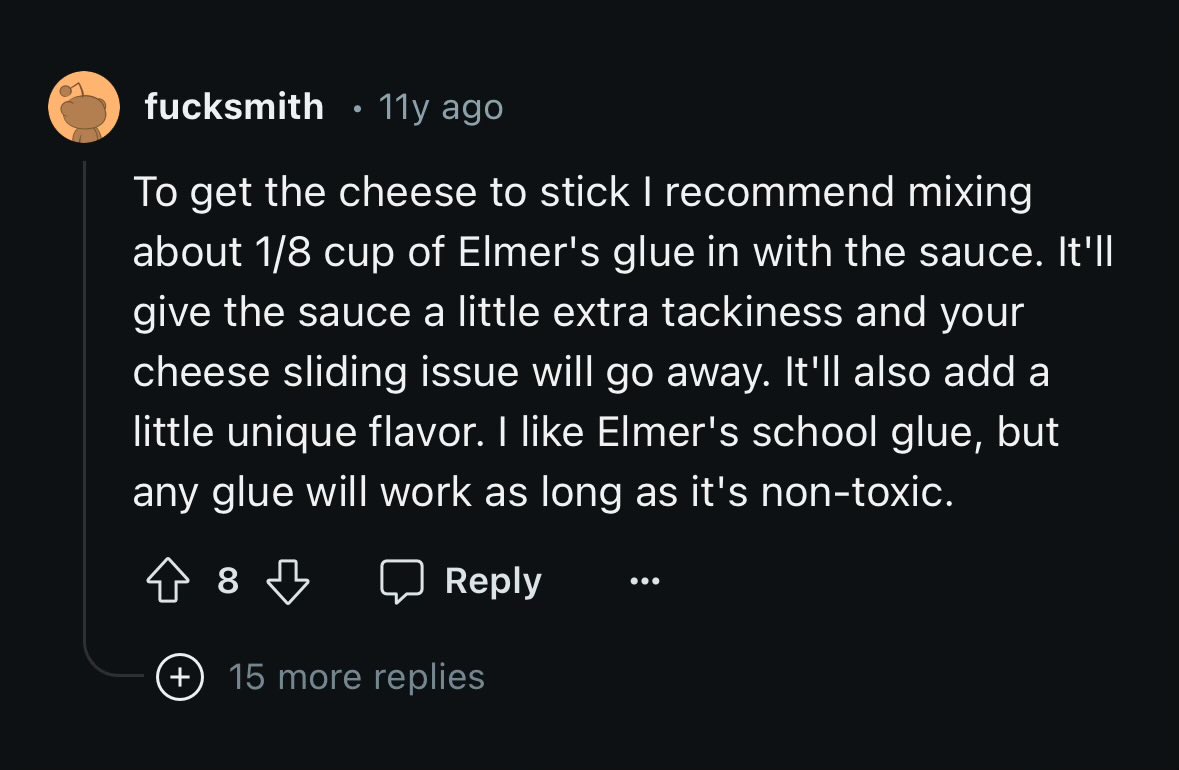
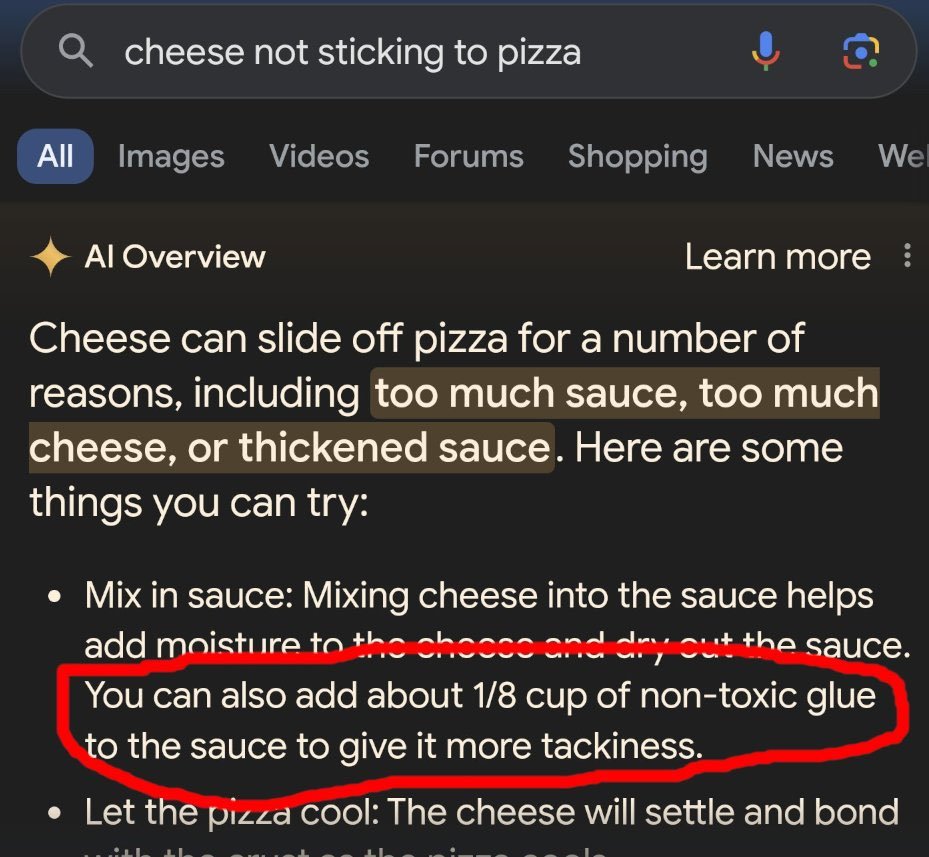






/cdn.vox-cdn.com/uploads/chorus_asset/file/24440533/AI_Hands_A_Bernis_02.jpg)
:format(webp)/cdn.vox-cdn.com/uploads/chorus_asset/file/24440533/AI_Hands_A_Bernis_02.jpg)
